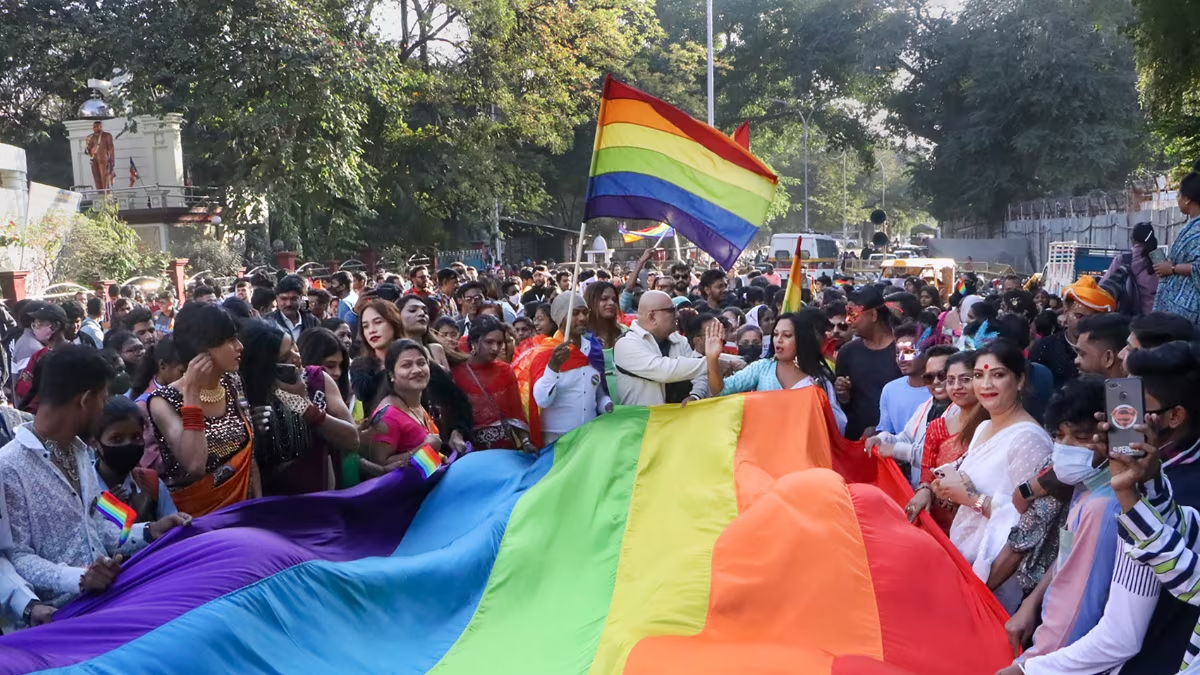Pride Month is a time for celebration and visibility for the LGBTQ+ community, but it’s also an important opportunity to highlight and address mental health issues affecting LGBTQ+ individuals.
Data from the Centers for Disease Control and Prevention (CDC) reveals that LGBTQ+ adults are twice as likely to report a diagnosis of depression, with nearly a third experiencing poor mental health.
This underscores a critical need for increased awareness and support. In the United States, various legislative measures targeting the LGBTQ+ community exacerbate these mental health challenges.
Joy Alafia, executive director of the California Association of Marriage and Family Therapists (CAMFT), emphasizes that the current political climate significantly impacts the mental well-being of LGBTQ+ individuals.
“If you’re constantly having to just fight to exist and be you, that takes a toll,” Alafia stated during an interview with KTVU’s The Four. This struggle is evident even in seemingly progressive areas like the Bay Area.
For LGBTQ+ people of color, the challenges are even more pronounced. These individuals face compounded difficulties due to intersecting forms of discrimination and marginalization.
LGBTQ+ youth also experience high levels of depression and anxiety, though Alafia notes a hopeful trend toward greater acceptance among younger generations. “It’s important to see the community get more support and to let people live authentically,” she remarked.
The demand for mental health services currently outstrips supply, with a notable shortage of therapists available to provide the necessary support. CAMFT is working to address this gap by improving the pipeline to therapists and ensuring that those seeking help can do so without stigma.
Alafia likens therapy to routine maintenance: “You take your car to get a tune-up, and you get an annual physical from your doctor. It’s the same with therapy; they help counsel and provide support through life.”
Reducing barriers to mental health care is crucial, and this involves not only increasing the number of therapists but also ensuring that care is culturally competent and inclusive. “We need to provide diversified care so people feel seen when they come to meet with their therapists,” Alafia said.

This includes training therapists in gender-affirming care and other specialized areas relevant to the LGBTQ+ community. Cost remains a significant barrier to accessing mental health services. “Insurance rates need to come down,” Alafia pointed out.
Lowering copays and ensuring that therapists can earn a livable wage are essential steps towards making care more accessible. Additionally, it’s important for members of the LGBTQ+ community to feel a connection with their therapists, making it vital to have therapists who share or understand their experiences.
Efforts to expand mental health resources for LGBTQ+ individuals are ongoing. Community centers like the Oakland LGBTQ+ Community Center and the Billy DeFrank LGBTQ+ Community Center in San Jose provide valuable support and resources.
These centers can help connect individuals with therapists and offer a range of services tailored to the needs of the LGBTQ+ community. Alafia highlighted the importance of reducing the stigma associated with seeking therapy. “Some folks still have a stigma associated with seeing a therapist.
We need to address that as well,” she said. By normalizing therapy and promoting its benefits, the community can move towards a more supportive environment for mental health care.
During Pride Month, the spotlight on LGBTQ+ mental health is particularly important. It’s a time to celebrate the progress made and acknowledge the ongoing struggles. The mental health crisis within the LGBTQ+ community demands attention and action, not just during Pride Month but year-round.
In addition to professional mental health support, peer support and community engagement play crucial roles in fostering well-being. Building strong, supportive networks within the LGBTQ+ community can help individuals feel less isolated and more understood.
As the conversation around mental health continues to evolve, it’s essential to remember that everyone’s journey is unique. Providing a range of resources and support options can help ensure that all individuals have access to the care they need.
Pride Month serves as a reminder of the resilience and strength of the LGBTQ+ community and the importance of addressing mental health as a fundamental aspect of overall well-being.
By raising awareness and working to remove barriers to care, we can create a more inclusive and supportive environment for all LGBTQ+ individuals. Pride Month is not just a celebration; it’s a call to action to support the mental health of a community that continues to fight for acceptance and equality.
Read more news:
